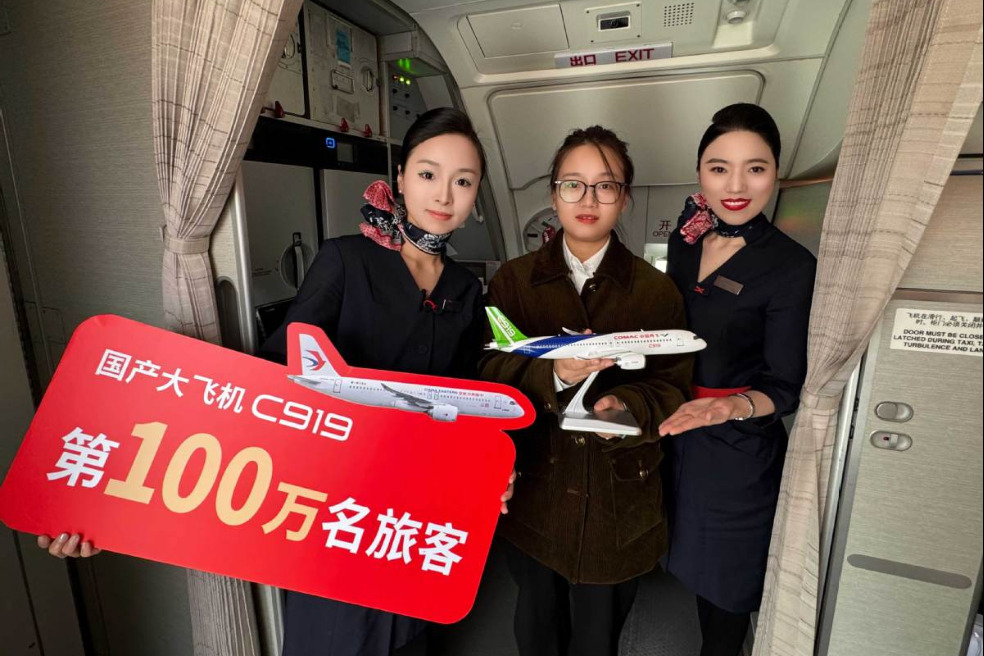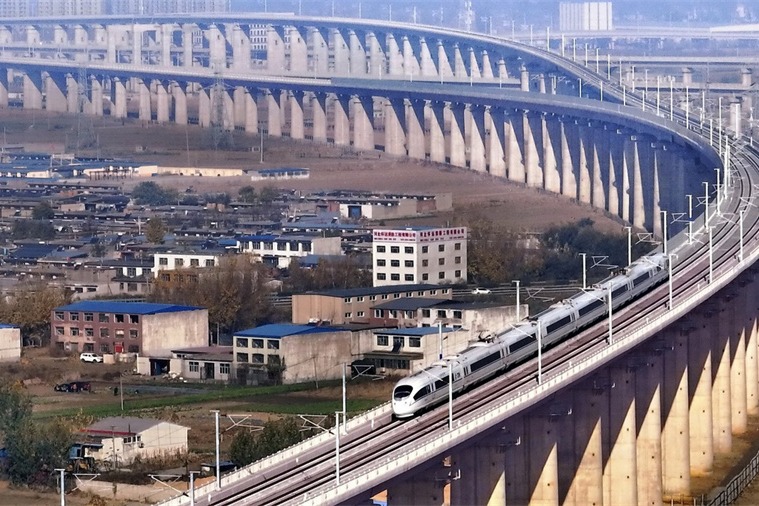Long-haul cargo train turns popular among exporters
Export of home appliances from Shenyang and surrounding areas picks up pace amid rising geopolitical tensions affecting maritime trade


Recently, drivers of forklift trucks were seen busy loading boxes containing 400 televisions into a rail container at the assembly center of China-Europe freight train services in Shenyang, Liaoning province.
The TVs were scheduled to arrive in Moscow in early June, where they will be distributed and sold at various department stores and e-commerce platforms across the country.
"We mainly export home appliances to Europe. There is a risk of component corrosion with maritime transport, and the cost of airfreight for home appliances is too high," said Guan Jun, vice-president of Shenyang Zhicheng Trading Co Ltd, a Shenyang-based foreign trade company.
After comparing various options, Guan said the company chose the China-Europe freight train services in 2022. It takes about 12 days to reach Russia and about 16 days to reach Germany from Shenyang.
This long-haul cargo train service has become a popular option for the export of home appliances from Shenyang and its surrounding areas, with an increasing number of companies choosing the cargo train service, he added.
Data showed that from January to April this year, Liaozhong Customs, a branch of Shenyang Customs, supervised the export of over 3,300 TVs worth more than 9.4 million yuan ($1.3 million). The majority of them were shipped by the Shenyang-Europe freight train services.
Exporters and business leaders said rising global geopolitical tensions and security concerns in the Red Sea maritime passage will further increase the importance of the China-Europe freight train services, a critical complement to China-Europe trade this year.
The hesitance shown by global shipping companies to use the Suez Canal may continue to impact China-Europe trade this year, putting operational costs for businesses under pressure on both sides, said Lin Meng, director of the Modern Supply Chain Research Institute at the Beijing-based Chinese Academy of International Trade and Economic Cooperation.
In response to disruptions in international shipping due to security concerns in the Red Sea region, many freight forwarders have adopted rail services as an alternative mode of transportation between China and Europe, said Lin.



































